|
One of the most interesting features of the Mary Robinson Centre is the swift boxes located on its grounds.
The swift is a migratory bird that visits Ireland between late April and August each year before making their way back to Africa. They are fast fliers, hence their name, and are known for their distinctive forked tail. Swifts spend most of their lives in the air and only land to nest and raise their young. Unfortunately, swift populations have been in decline in recent years due to loss of habitat and changes in climate patterns. According to Swift Conservation Ireland, swifts are particularly vulnerable to changes in the built environment, such as the removal of old buildings and the sealing up of gaps and crevices in newer buildings. This can leave swifts with fewer nesting sites, which can have a significant impact on their populations. To help address this issue, The Mary Robinson Centre installed twelve swift boxes along with attraction calls on their grounds to provide safe nesting sites for swifts. The attraction calls were first switched on May 2023.
These boxes are specially designed to mimic the natural nesting sites that swifts prefer, such as the nooks and crannies of old buildings. By providing these boxes, the centre is helping to protect and promote the conservation of swift populations in the area.
The installation of these swift boxes is also an important way for the centre to promote environmental awareness and sustainable living. By encouraging the public to learn about swifts and their habitat needs, the centre is helping to foster a greater appreciation for the natural world and the need to protect it. Several swift boxes have been installed around Mayo, including 18 in Ballina. BALLINA NEST SITE REPORT from Swift Conservation Ireland – updated 2021
Their home is the nest site where they breed every year, and the months they spend in this place are crucial for the future of the species since they come here specifically for breeding, and this place should be regarded as their home.
Overall, the swift boxes at The Mary Robinson Centre are a small but important way that the Centre is contributing to the conservation of biodiversity and the promotion of sustainable living. They serve as a reminder of the importance of protecting our natural world and the many species that call it home.
If you would like to learn more about the swifts, check out these following videos made by Mayo Changemakers:
Many thanks to Linda Huxley and Swift Conservation Ireland for their invaluable help and advice.
0 Comments
On April 14th, Ballina became the centre of attention as it welcomed the President of the United States, Joe Biden.
The atmosphere in Ballina was electric, with locals and visitors alike lining the streets to catch a glimpse of the President. The town was decorated in American flags and bunting, landing to the feelings of excitement and anticipation. The crowds were enthusiastic, and despite the cold and the rain, spirits remained high. The event was full of musical performances by The Academic, The Coronas, and The Chieftains, and a spectacular display of lights which could be seen lighting the sky for miles away!
Mary Robinson, former President of Ireland and United Nations High Commissioner for Human Rights, gave a heartfelt speech that resonated with the people of Ireland and beyond.
The Light in the Window was a prominent feature during her speech. President Mary Robinson placed a Light in the Window of Áras an Uachtaráin to welcome home Ireland’s emigrants, resulting in Ireland’s embrace of its over 70 million global diaspora. Last Friday night, that light was shining across the River Moy from The Mary Robinson Centre, welcoming Ballina’s other President, Joe Biden, back home.
Joe Biden himself started his speech by pointing out the Light in the Window in saying “Mary, I see the Light!”
Mary also read the poem "The Emigrant Irish" by Eavan Boland. The reading was a poignant moment that added to the emotional significance of the occasion.
Here is “The Emigrant Irish” by Eavan Boland in full:
Like oil lamps, we put them out the back --
of our houses, of our minds. We had lights better than, newer than and then a time came, this time and now we need them. Their dread, makeshift example: they would have thrived on our necessities. What they survived we could not even live. By their lights now it is time to imagine how they stood there, what they stood with, that their possessions may become our power: Cardboard. Iron. Their hardships parceled in them. Patience. Fortitude. Long-suffering in the bruise-colored dusk of the New World. And all the old songs. And nothing to lose.
The Mary Robinson Centre worked closely with the US Embassy, White House team, Department of Foreign Affairs, and the Taoiseach, as well as local partners and the University of Galway to help in the running of the event.
A display of some of Mary’s Archive was put together in Mary’s childhood bedroom for the occasion by The Mary Robinson Archive at the University of Galway.
The Centre also played an important role in providing a hub for media coverage of the Presidential address.
Overall, the visit of President Biden to Ballina was a historic moment for the town and the country as a whole. The atmosphere, crowds, and displays all showcased the warmth and hospitality of the Irish people, and the collaboration between local partners and international teams resulted in a spectacular and memorable visit. As Mary Robinson said, “you have two Presidents who love Ballina, what else could you ask for!”
Ballina is getting excited and ready to welcome President Joe Biden for a homecoming visit on Friday, April 14. Here an incredible view of the stage from Mary Robinson’s childhood bedroom, here in The Mary Robinson where the sun is shining bright! President Mary Robinson placed a Light in the Window of Áras an Uachtaráin to welcome home Ireland’s emigrants, resulting in Ireland’s embrace of its over 70 million global diaspora. Tonight, that light will shone from Mary’s childhood bedroom in Ballina, welcoming Ballina’s other President, Joe Biden, back home. An amazing evening is planned to happen with musical performances taking place! The Coronas, The Academic and The Chieftains will perform outside St. Muredach’s Cathedral, Ballina.
This is a free event open to the public. Gates open from 5.30pm. If you have not registered to attend yet, you can do so at: tinyurl.com/Biden-Ballina Mary Robinson’s ‘Light in the Window’ and its significance
Mary Robinson became the first female President of Ireland in 1990, promising to be a President for change, embracing inclusivity and community in her term. In her Presidential acceptance speech in 1990, the President-Elect committed to this, saying ‘I am not just a President of those here today but of those who cannot be here; and there will always be a light on in Áras an Uachtaráin for our exiles and our emigrants.’ Placing a lit candle in the window was an old Irish tradition to welcome friends or strangers on the road to shelter, often associated with Christmas. Here, its symbolism is to welcome home returning emigrants. In doing so, President Robinson began an important dialogue on Ireland’s long history of emigration and exile. Redefining our emigrants as our diaspora was an invitation to acknowledge and embrace those overseas with an affinity to Ireland. Our nation of 3.5 million became a global community of 70 million people. It is estimated that over 40 million of those diaspora are living in the United States of America. Mary Robinson’s tradition of the Light in the Window at Áras an Uachtaráin remains, and a Tilley Lamp is permanently lit at our Presidential residence to welcome home our returning diaspora. The original light lit by Mary Robinson at Áras an Uachtaráin will be lit in the window of her childhood bedroom, shining out from The Mary Robinson Centre over the River Moy in Ballina as a permanent welcome home to our diaspora. Ireland’s history of emigration For centuries, Irish people left home in search of opportunity, and at times to avoid hardship, persecution or famine. The emigrant’s farewell was often waked as a death would be, in certain knowledge that that person may never be seen or heard from again. While increased access and improved communications has made it easier for more recent emigrants to connect home, factor such as lack of educational opportunity made writing home difficult, and a chasm existed that made returning home an impossible task for some. ‘Cherishing the Irish Diaspora’ speech by President Mary Robinson 2 Feb 1995 - https://president.ie/en/media-library/speeches/cherishing-the-irish-diaspora. This speech was entered into the US Congressional Record by Senator Edward Kennedy 27 Feb 1995 - https://www.govinfo.gov/app/details/CREC-1995-02-27/CREC-1995-02-27-pt1-PgS3145/summary. Works at The Mary Robinson Centre are on track. Thanks to the considerable efforts of Mayo County Council and LPB Construction of Manulla, building works will be completed next month. The interpretation fit out phase of the project then begins, after which the Centre will be ready to open. Philanthropic fundraising for the Centre is ongoing. The Centre’s education and outreach programme will also ramp up later this year, to include educational activities, workshops and arts events targeted at school students and Ballina’s wider community delivered with project partners NUI Galway, Mayo County Council and Ballina Green Town. Speaking on the announcement, local Board member Barry McLoughlin said ‘Developing a partnership with NUI Galway to bring educational opportunity to the young people of Ballina is the reason I joined the Board of The Mary Robinson Centre. It gives me great pleasure to see these events in planning. I would encourage all local schools and students to participate in events at The Mary Robinson Centre, learn more about the issues addressed and how they can play a greater role in shaping a stronger, more sustainable future for our town.’
Full details of events and opportunities at The Mary Robinson Centre will be posted here on the Centre’s website and social media as they are available. Niamh Ni Charra, NUIG Archivist working on the Mary Robinson archive has reached an important milestone in her work. In a blog post on her progress to date, Niamh outlines some of the challenges she has faced, and the gems that are emerging in this significant and extensive archive.
Read more about Niamh's progress here. On the 10th of December each year we celebrate the anniversary of the Universal Declaration of Human Rights, adopted by the UN General Assembly in December 1948. This year, Human Rights Day calls on everyone to take a stand for human rights. The Mary Robinson Centre honours 10 women who have stood up for human rights with a short video that highlights quotes which show their vision for making the world a better place. As Mary Robinson has often quoted, in 1958, on the tenth anniversary of the Universal Declaration of Human Rights, Eleanor Roosevelt said, “Where, after all, do universal human rights begin? In small places, close to home.” We can all take small steps to stand up for human rights and reaffirm our common humanity. Thank you to all who have fought so hard for human rights. For more information: Human Rights Day We've given a bit more information about these inspiring women below, with links so you can find out more about them and the incredible things they've achieved.
Zainab Salbi - is a humanitarian, author, and media personality that has dedicated herself to women’s rights and freedom. At the age of 23, she founded Women for Women International, a grassroots humanitarian and development organization dedicated to serving women survivors of wars rebuild their lives. Malala Yousafzai - shot by the Taliban for going to school. Malala is a global advocate for the millions of girls being denied education because of social, economic, legal and political factors. In 2013, Malala co-founded the Malala Fund to empower and educate girls and was a Nobel Peace Prize recipient in 2014. Chimamanda Ngozi Adichie - a Nigerian novelist whose work has been translated into more than 30 languages, Chimamanda has used her global platform to stand up for the rights of women and refugees. She is famous for her TED Talks, particularly "We Should All Be Feminists." Monica McWilliams - is a professor in the Transitional Justice Institute at Ulster University and serves on a three-person panel which makes recommendations on the disbandment of paramilitary organizations in Northern Ireland. During the Northern Ireland peace process, Ms. Williams co-founded the Northern Ireland Women’s Coalition political party; she is a signatory of the Belfast/Good Friday Agreement and chaired the Implementation Committee on Human Rights. Coretta Scott King - was an author, activist, civil rights leader, and the wife of Martin Luther King, Jr. from 1953 until his death in 1968. Coretta Scott King helped lead the African-American Civil Rights Movement in the 1960s. Eleanor Roosevelt - was an American politician, diplomat, and activist. She was longest-serving First Lady of the United States, pushed the US to join the United Nations and became it's first delegate. She served as the first chair of the UN Commission on Human Rights, and oversaw the drafting of the Universal Declaration of Human Rights. No list of human rights advocates would be complete without her. Mary Robinson - first female President of Ireland, former barrister advocating human rights and women’s equality in the Irish and European Courts, former UN High Commissioner of Human Rights and founding member of The Elders. Mary has a long career of global advocacy for human rights. Aung San Suu Kyi - is a noted prisoner of conscience and advocate of nonviolent resistance, she was awarded the 1991 Nobel Peace Prize. Since being released by the Burmese military and she has been a State Counsellor and Leader of the National League for Democracy in Burma. Mairead Corrigan Maguire - is a peace activist from Northern Ireland. She co-founded the Women for Peace, which later became the Community for Peace People, an organisation dedicated to encouraging a peaceful resolution of the Troubles in Northern Ireland. Maguire was awarded the 1976 Nobel Peace Prize. Graça Machel - one of the world’s leading women’s and children's rights activists who has campaigned tirelessly to champion equality for women and children. Machel is the former freedom fighter, Mozambique's first Education Minister, the Founder of The Graça Machel Trust, a founding member of The Elders and the widow of the late Nelson Mandela. Mary Robinson served as President of Ireland from 1990 to 1997, and the United Nations High Commissioner for Human Rights, from 1997 to 2002. She first rose to prominence as an academic, barrister, campaigner and member of the Irish Senate (1969–1989) and was inaugurated as the seventh, and first female, President of Ireland on the 3rd of December 1990. At her inauguration, President Robinson declared that she would cultivate a role which represented all the people of Ireland and that the Presidential Office would be open and inclusive. She followed through with this promise, creating a platform for the marginalised, reaching out to the global Irish diaspora, and connecting people so that nobody was left behind in Ireland. Robinson's work before, during and since her presidency has undoubtably been inspired by a lifelong desire to ensure Human Rights for all. The devastation that followed two world wars left European political leaders facing almost insurmountable challenges. In their efforts to restore peace and tackle economic regeneration, they successfully worked together, building structures which would rescue citizens from the destruction of the past, formulated plans to provide security and stability going forward and enshrining a set of basic inalienable rights in the Universal Declaration of Human Rights. In her TED Talk (which you can view below), Mary Robinson describes 1945 as "an extraordinary year." Mary Robinson has described the Universal Declaration of Human Rights as an "international Magna Carta for all mankind." Throughout her life, she has lived by its mantra, that “all human beings are born free and equal in dignity and rights.” The desire to ensure that no one is left behind is central to all of Robinson's work towards furthering human rights and justice. Last year, when she took part in the commemoration of the 70th anniversary of the end of the Second World War, Mary Robinson spoke of the extraordinary tasks achieved back then, and of how capable we are as people in finding solutions to world problems. After her Presidency, Mary Robinson went on to become the High Commissioner for Human Rights and has held several UN roles since. In her work around the globe focussed on promoting human rights and sustainable development, it became apparent to her that the greatest threat to human rights was climate change and its enormous impact on some of the most marginalised people on the planet. She regularly met people who, as a result of climate pattern changes, suffered from long periods of drought and flash flooding. Buildings destroyed and food shortages from poor harvests. Robinson heard repeatedly: ‘oh, but things are so much worse now.’ Basic rights to food and shelter were deprived as a result of climate change. Robinson could see that those who had had no contribution to the causes of climate change, were in fact the most affected by it. She realised, that she had to address this moral argument, a question of climate justice, to ensure that the world's poorest and most vulnerable people do not get left behind. When she considers the future life of her grandchildren, and the world they will share with nine billion people in the year 2050, Mary Robinson hopes that they will look back on the year 2015 - the year the Sustainable Development Goals were launched and the Paris Climate Agreement reached - and consider it ‘a remarkable year’. She likes to imagine that they will look back on it gratefully, for the decisions which were made which will alter the route of environmental catastrophe. The history books of the future will recount two important summits which have taken place that year. The first one, in New York, in September, where the agreement on Sustainable Development Goals was reached and would provide help for countries to live sustainably in tune with Mother Earth. The second, COP21 in Paris, where an agreement was reached between all parties which would put into place steps to prevent the Earth’s temperature from rising above 1.5 degrees Celsius. Reflecting on the events of 2016, Robinson acknowledges that political and economic uncertainty around the globe presents challenges that are undoubtably daunting. However, the need for action to tackle global challenges has never been greater and in her recent statement for The Elders, she talks of finding inpiration at the recent COP22 talks in Marakech, Morocco, and the need for all of us to work together for a better world where human rights, peace, justice and security are enjoyed by all. We as a people are capable of coming together to solve problems, insurmountable tasks. We are all in this together… we all want the same thing - a world that in 2050 will be a safer world, a much more equal world. Where nobody is left behind. The Board of the Victoria House Foundation met in Ballina, Co. Mayo on Saturday 26 November 2016. The Board and its project partners Mayo County Council and NUI Galway reiterated their commitment to the vision to use Mary Robinson’s legacy at a location in Ballina to inspire and foster personal leadership in the service of promoting human rights, gender equality and women’s leadership.
For the Victoria House Foundation, the core of this vision continues to be the tremendous gift of Mary Robinson’s archive to the West of Ireland, most particularly for its scholarly value, and the opportunity to create academic and tourism activity. To achieve that, and as part of an ongoing review of the project by the stakeholders, Mary Robinson confirmed that her archive will be gifted to NUI Galway with Mayo County Council having full access to any part of the collection which is required to support the mission of the centre in Ballina. Storage of the archive in Galway will obviate the need to duplicate expensive archival facilities in Ballina. Developing the centre around Mary’s childhood home remains the preferred option of the Victoria House Foundation and other options will also be explored as part of the current review of the project, to be concluded in Q1 2017, and the Board will provide a fuller update on the outcomes of the review at that time. At the meeting of the Victoria House Foundation, the Board was informed that the Revenue Commissioners had confirmed its valuation of the Archive at €4.65 million, with its valuer reporting that it was “of the utmost importance both nationally and internationally to an Irish and world audience of scholars and academics”. Under Section 1003 of the Taxes Consolidation Act 1997, the market value is the lesser of the value placed by the donor and the value placed by the Revenue Commissioners. In this case the value obtained by Mayo County Council and accepted by Mary Robinson was the lower figure of €2.5 million, and this figure was taken for the purposes of calculating the potential tax credit of €2 million. Taking account of Capital Gains Tax that may have arisen on the donation of the archive to the State, the net credit that could have arisen is estimated at €1.2 million. Mary Robinson reiterated at the meeting of the Board that she does not intend to avail of any tax credit that might be available to her under Section 1003. Dr Jim Browne, President of NUI Galway, said the university was honoured to accept the archive. “It is a tremendous gift to the West of Ireland. NUI Galway, which has on its own campus recently built state-of-the-art archival facilities with an established team of experienced archivists and librarians, is privileged to receive such a wonderful gift. It will benefit our students and researchers for years to come, and indeed will offer a fabulous resource to scholars of human rights, gender equality and women's leadership all over the world. We will ensure that the University will protect and facilitate best use of this unique and very valuable resource.’ Mr Peter Hynes, Chief Executive of Mayo County Council, said he looked forward to a phased development of the centre with NUI Galway. “This renewed commitment by the Foundation and its partners will bring tremendous benefits to Ballina, to Mayo and to the West. I look forward to Mayo County Council providing a leadership role in developing this extremely important project into the future.” Today, the International Day for the Elimination of Violence against Women is the start of 16 Days of Activism against Gender-Based Violence Campaign which runs until the 10th of December, International Human Rights Day. This campaign is a time to galvanize action to end violence against women and girls around the world. In 2016, the emphasis of the campaign is the need for sustainable financing for efforts to end violence against women and girls towards the fulfilment of the 2030 Agenda for Sustainable Development and specifically Goal 5: Gender Equality. One of the major challenges to efforts to prevent and end violence against women and girls is the substantial funding shortfall globally. Resources for initiatives to prevent and end violence against women and girls are severely lacking. Frameworks such as the Sustainable Development Goals, which includes a specific target on ending violence against women and girls, offer huge promise, but must be adequately funded in order to bring real and significant changes in the lives of women and girls. At The Mary Robinson Centre International Symposium in July, one of our plenary sessions focussed on Goal 5: Mobilising Resources to Achieve Gender Equality and Empower All Women and Girls. This panel featured talks from GERALDINE FRASER-MOLEKETI, Gender Envoy for the African Development Bank; HEATHER GRADY, Vice President, Rockefeller Philanthropy Advisors and NOELEEN HEYZER, formerly Head of UNIFEM and Executive Secretary of the UN Economic and Social Commission for Asia Pacific (ESCAP) and was Chaired by MARY ROBINSON. You can watch the full plenary session below. More information about the 16 Days of Activism Campaign can be found on the UN Women, WHO and Women's Aid Ireland websites. |
Archives
June 2024
Categories |
- Home
- Ballina Green Town
-
Events
- Upcoming Events >
-
Previous Events
>
- Mrs Robinson - Ballina Film Premiere
- The Mary Robinson Climate Conference 2024
- Ballina Climate Action Weekend >
- The Mary Robinson Climate Conference 2023
- Sixth International Human Rights Lecture
- International Human Rights Lecture Series
- Mayo Changemakers
- Schools Programme
- International Symposium
- Visiting Scholar Programme
- 2017 IHRL
- 2016 IHRL
- 2015 IHRL
- 2014 IHRL
- Blog
- About
- Contact Us
- Donate

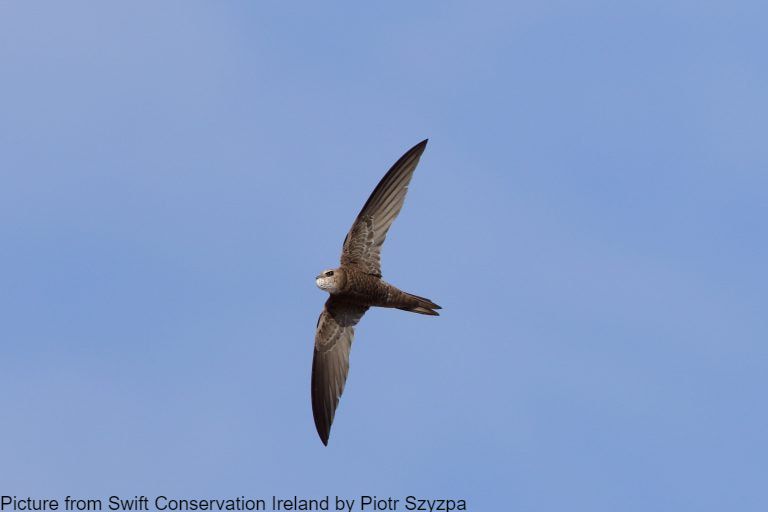

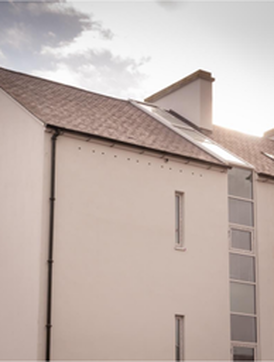
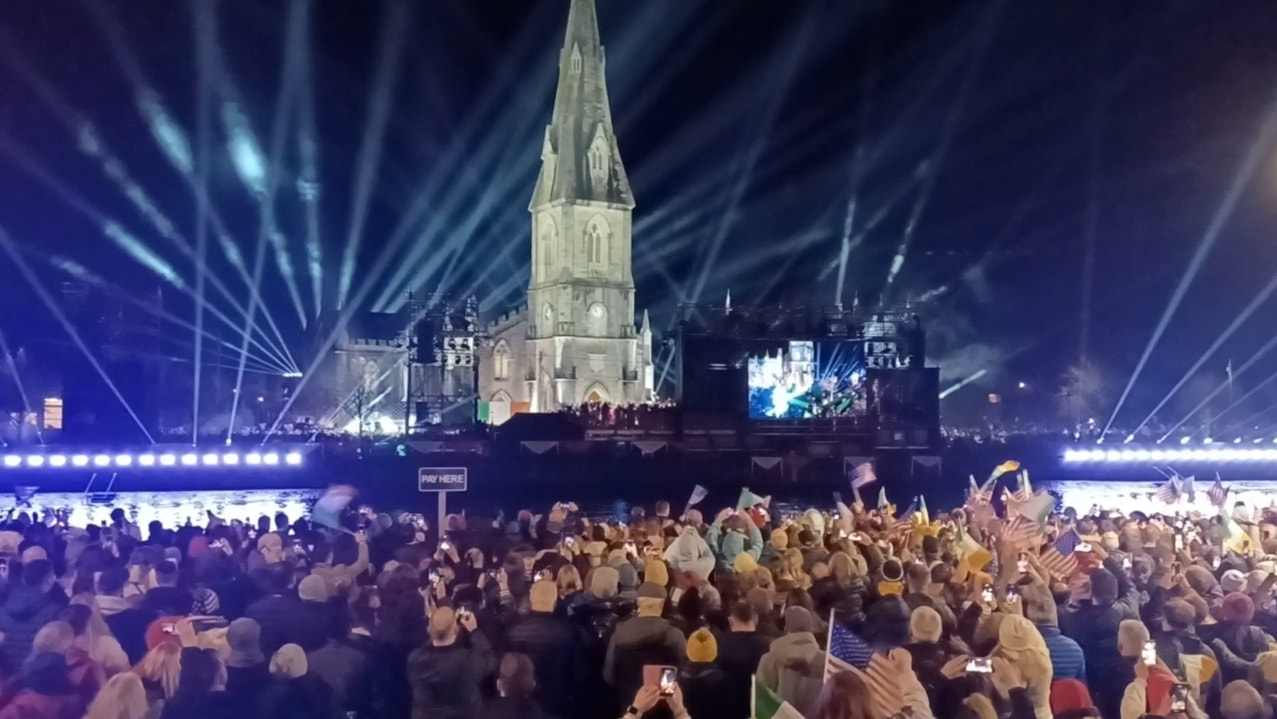
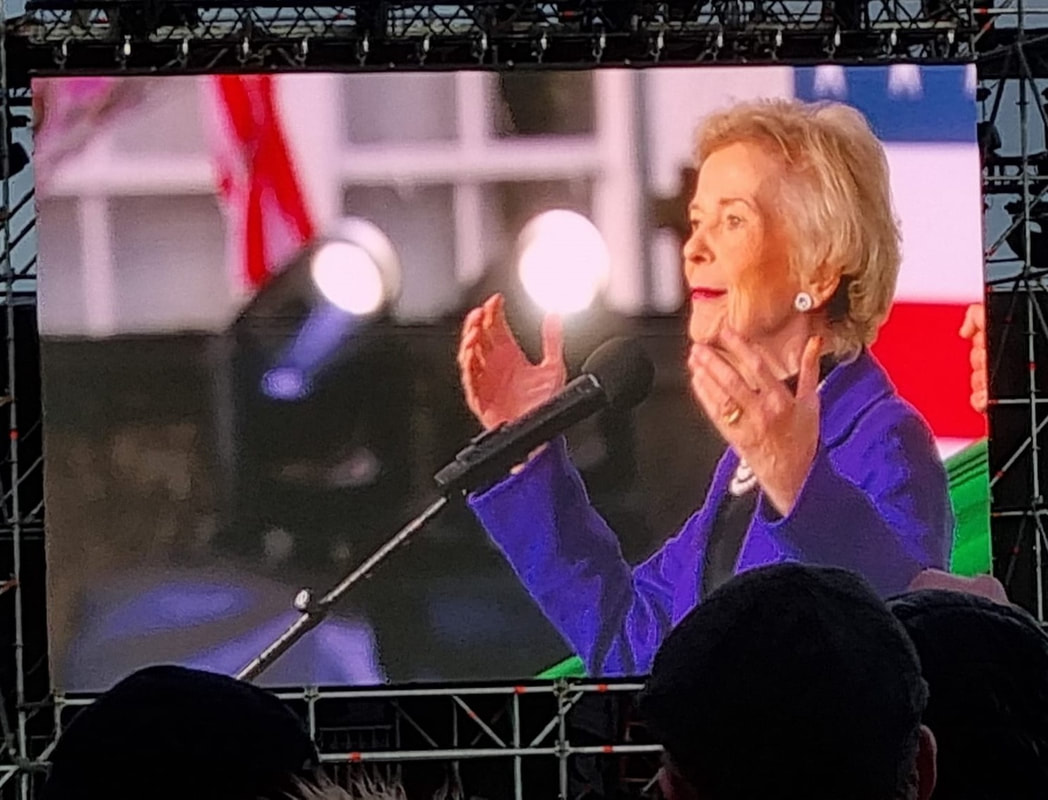
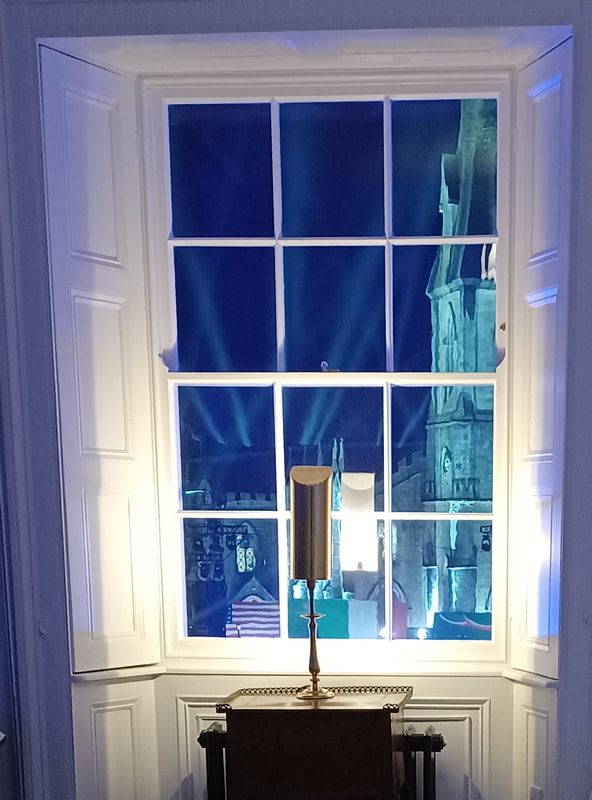
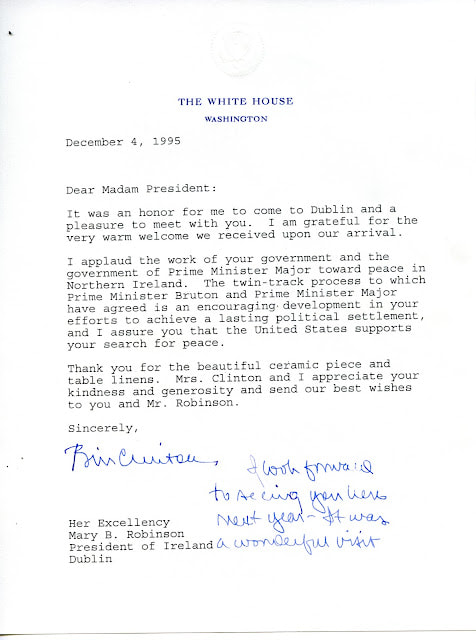
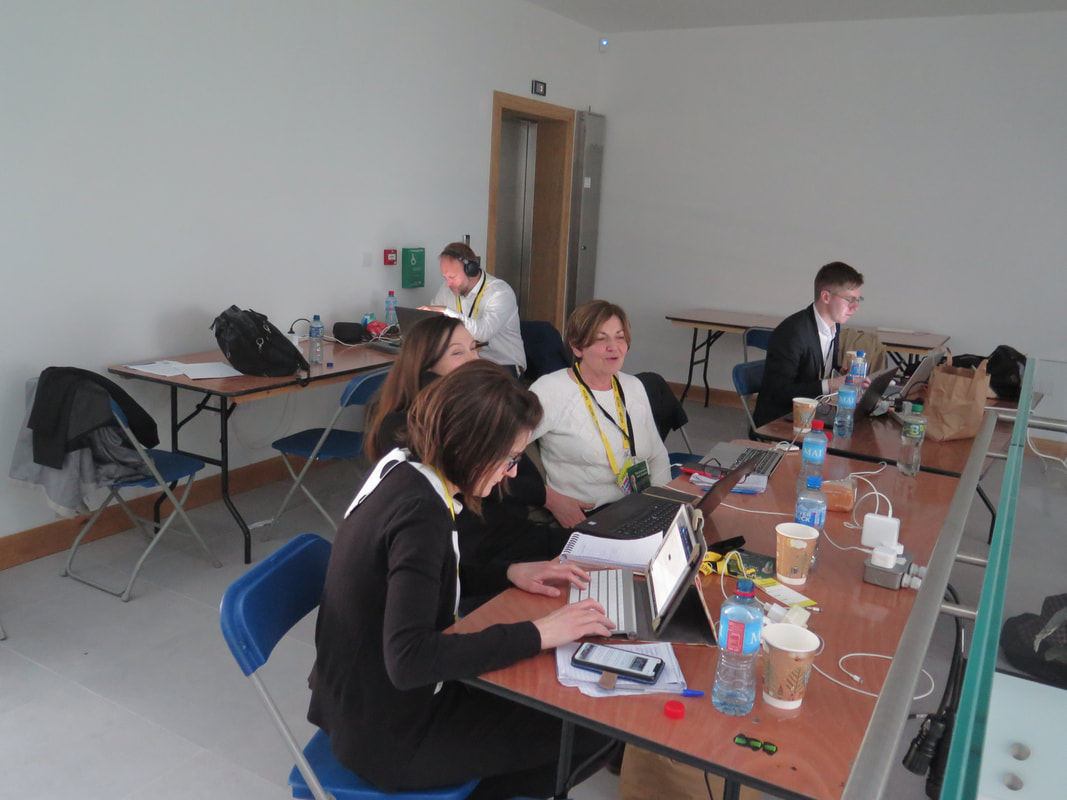
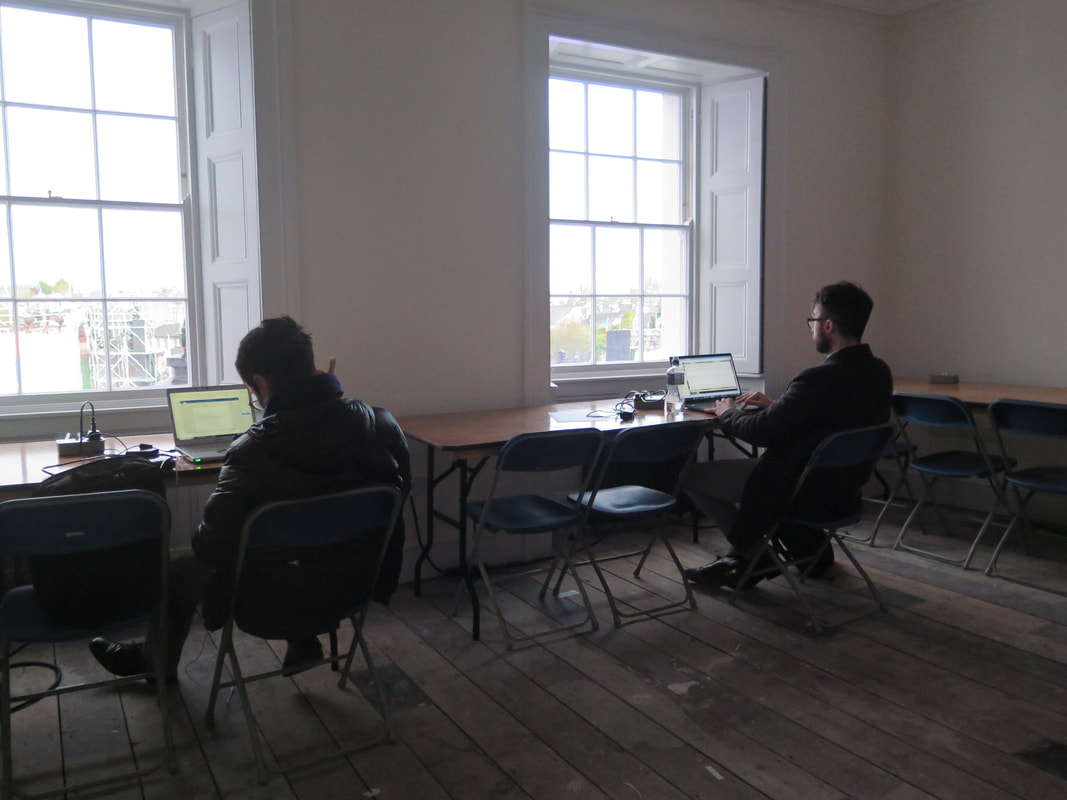
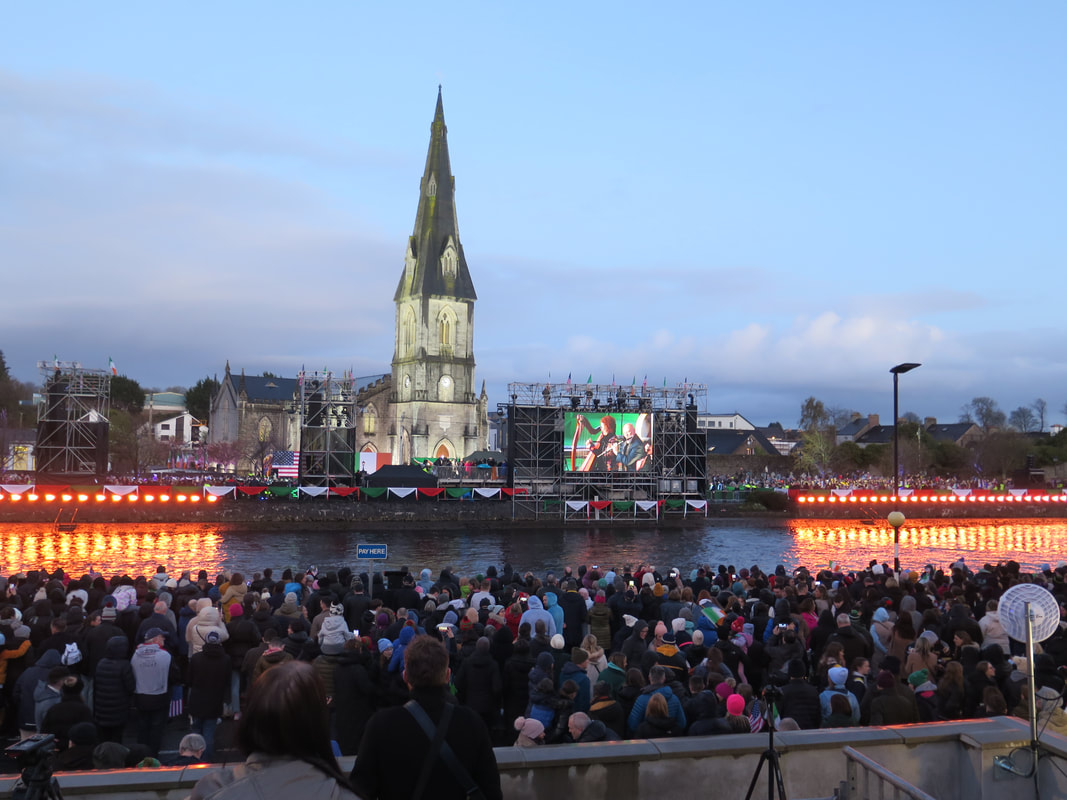
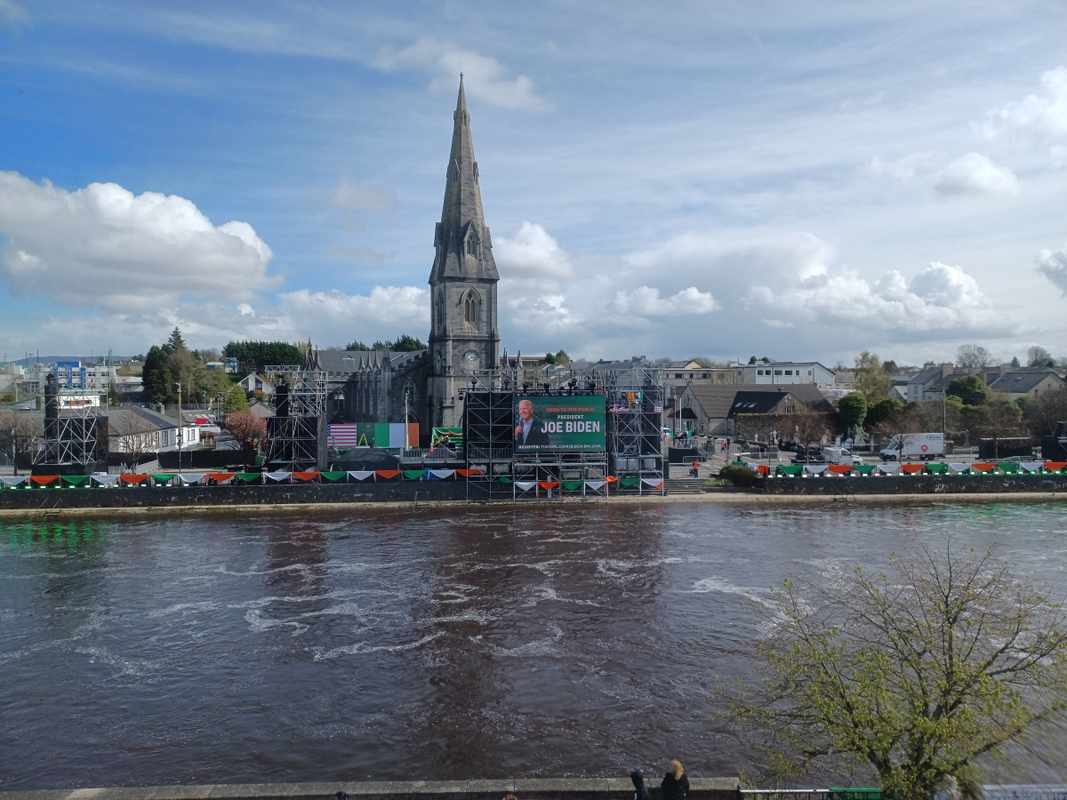
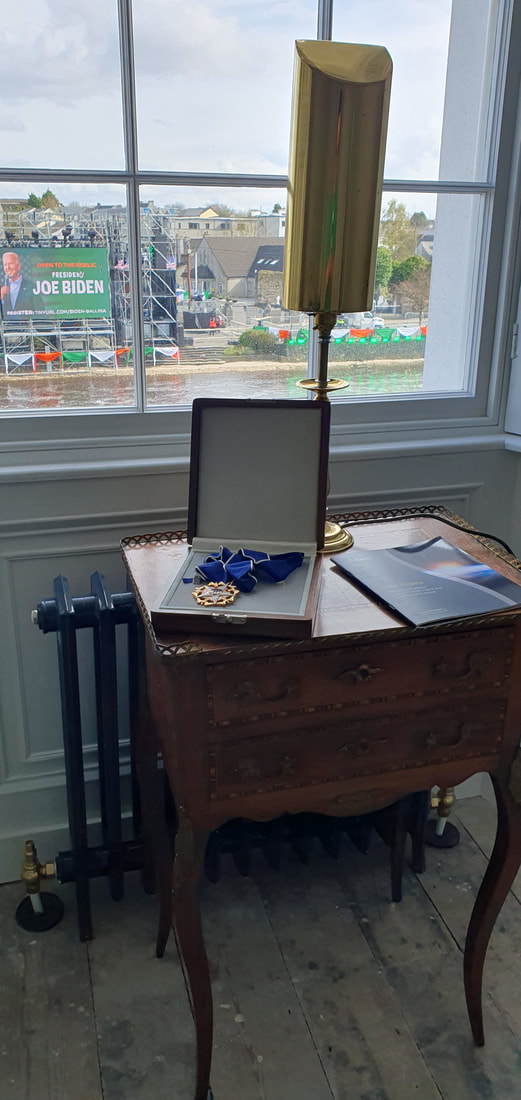

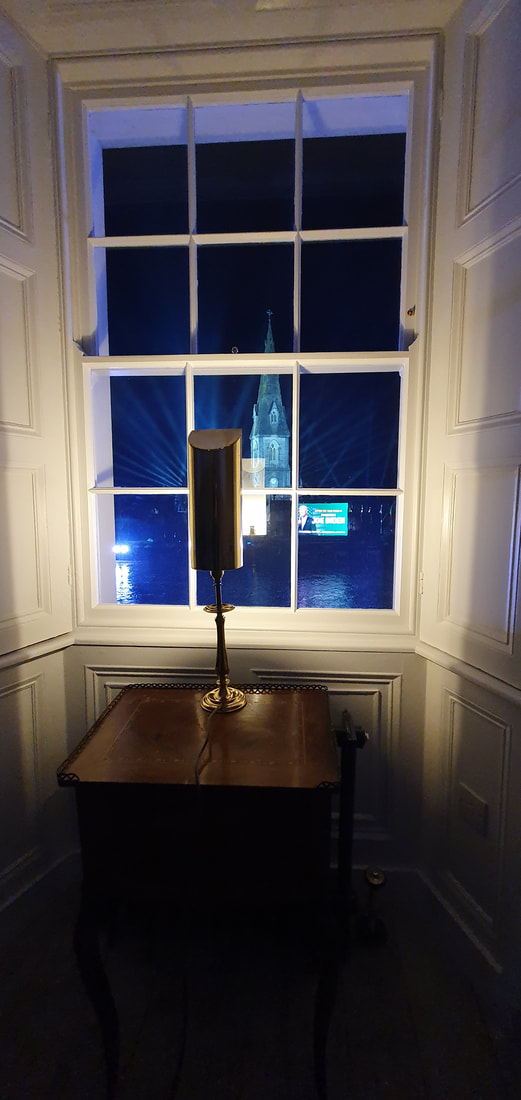

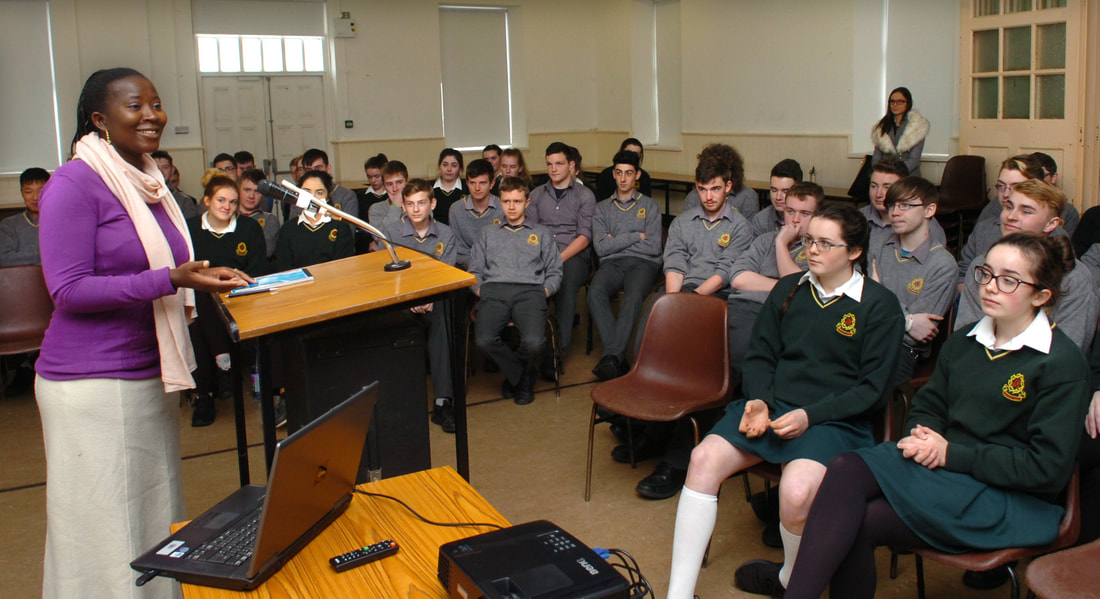
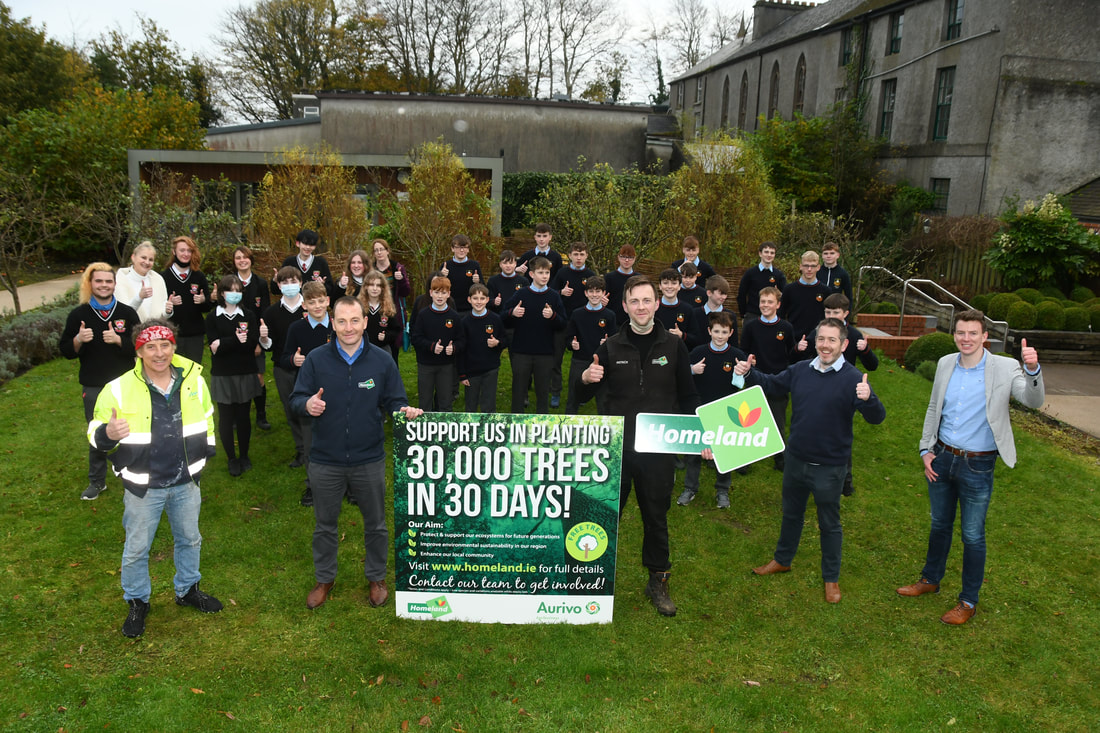
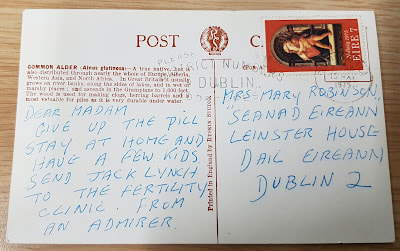
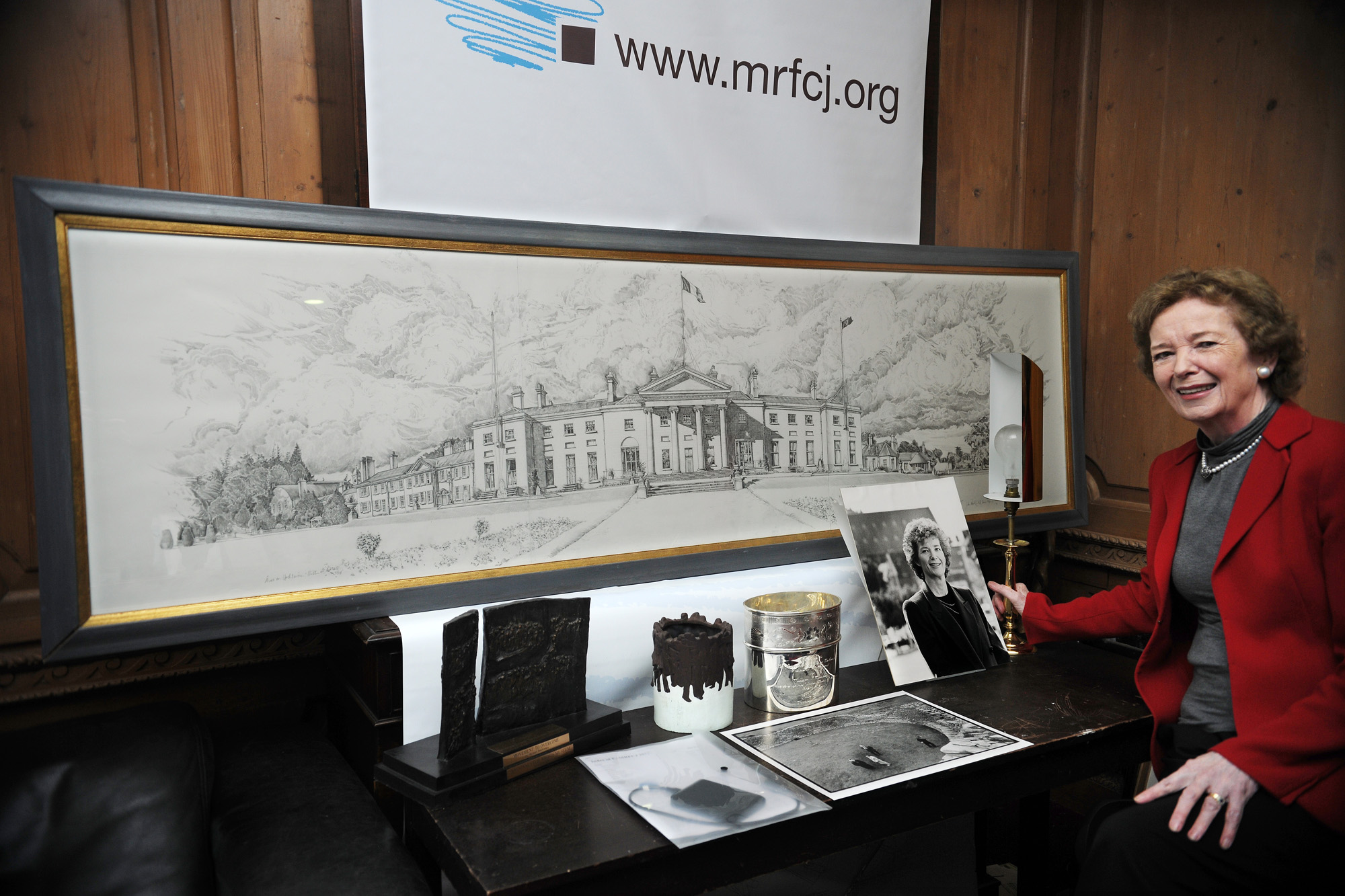
 RSS Feed
RSS Feed
